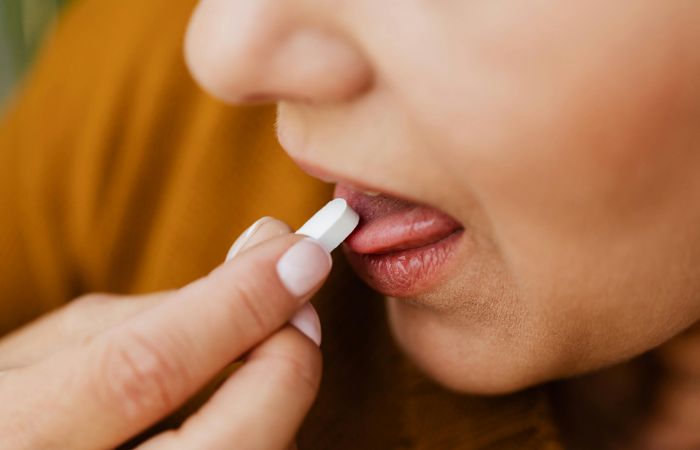Attention Deficit Hyperactivity Disorder (ADHD) is a neurodevelopmental condition that affects millions of people worldwide. Characterized by symptoms such as inattention, hyperactivity, and impulsivity, hyperactiveness can significantly impact daily life, including school performance, work productivity, and relationships.
The challenges of living with hyperactiveness can feel overwhelming, but effective treatment options are available to help manage symptoms and improve quality of life. In this guide, we’ll explore various treatments for ADHD, from medications and therapy to lifestyle changes and calming techniques.
Understanding Treatment Options
Medication Why Do Stimulants Calm hyperactiveness?
Hyperactiveness is associated with an imbalance of neurotransmitters, primarily dopamine and norepinephrine, which play key roles in attention and impulse control. Individuals with hyperactiveness often have lower levels of these neurotransmitters in certain areas of the brain, leading to symptoms such as difficulty focusing and hyperactivity.
Stimulants, the most commonly prescribed medications for hyperactiveness, work by increasing the availability of dopamine and norepinephrine. This helps regulate brain activity, resulting in improved focus, reduced impulsivity, and a calming effect on hyperactive behavior. Types of hyperactiveness Medications
Stimulants
Stimulants are the most commonly prescribed medications for hyperactiveness.
1) How They Work: By increasing dopamine and norepinephrine levels, stimulants enhance brain activity in areas responsible for attention and impulse control.
2) Side Effects: May include loss of appetite, sleep disturbances, increased heart rate, and mood swings.
Non-Stimulants
Non-stimulants are often used when stimulants are ineffective or cause significant side effects.
1) How They Work: These medications work more gradually by influencing norepinephrine levels without the stimulant effect.
2) Side Effects: Fatigue, dizziness, and gastrointestinal issues.
Therapy Cognitive-Behavioral Therapy (CBT)
Cognitive-Behavioral Therapy (CBT) is a structured, evidence-based approach designed to help individuals reframe negative thinking patterns and improve emotional regulation. Rooted in the tenets of CBT, this therapy emphasizes actionable strategies to address challenges and foster personal growth. Understanding the principles of CBT therapy can empower individuals to manage hyperactiveness symptoms and develop practical solutions for everyday struggles.
1) How It Helps: CBT focuses on identifying and changing negative thought patterns and behaviors. It can help individuals manage procrastination, improve time management, and reduce emotional outbursts by addressing the core tenets of CBT.
2) Techniques: Through goal-setting, breaking tasks into smaller steps, and developing coping strategies for stressful situations, individuals can align their actions with the principles of CBT therapy, creating a path to more balanced and productive living.
Behavioral Therapy
1) How It Helps: Behavioral therapy is particularly useful for children, teaching them to replace problem behaviors with positive ones through reinforcement techniques.
2) Techniques: Reward systems, clear instructions, and structured routines.
Lifestyle Changes
Healthy Diet
Nutrition plays a significant role in brain health. A balanced diet rich in fruits, vegetables, whole grains, and proteins can improve focus and reduce hyperactivity. Avoiding sugar and artificial additives may also help.
Regular Exercise
Physical activity increases dopamine and endorphin levels, which are natural mood regulators. Activities like swimming, dancing, or even walking can help reduce hyperactiveness symptoms and improve overall well-being.
Stress Management Techniques
1) Mindfulness: Helps individuals stay present and reduce overthinking.
2) Yoga: Combines physical movement with relaxation to calm the mind.
3) Meditation: Encourages self-awareness and emotional regulation.
Adequate Sleep
Sleep directly impacts attention and emotional regulation. Establishing a consistent bedtime routine, minimizing screen time before bed, and creating a calming sleep environment can greatly improve ADHD symptoms.
Calming Techniques
Managing hyperactiveness can be challenging, but incorporating calming activities for ADHD into daily routines can help reduce stress and improve focus. For both children and adults, tailored hyperactiveness calming strategies can make a significant difference in emotional regulation and productivity. Below are some effective methods and activities for adults and children with ADHD alike.
How to Calm Down a Child with ADHD?
Sensory Activities: Engage children in sensory-rich calming activities for hyperactiveness, such as playing with sensory toys, drawing, or building. These activities channel their energy and provide a soothing outlet.
Deep Breathing Exercises: Teach simple breathing techniques to help children manage anxiety or frustration, a core part of effective ADHD calming strategies.
Time-Outs in a Calm Space: Create a dedicated quiet corner with soft lighting and soothing items where the child can decompress and reset.
How to Calm Down ADHD in Adults?
Mindfulness and Meditation: Regular mindfulness practice helps adults manage racing thoughts and improve focus, forming a foundational part of ADHD calming strategies.
Physical Activity: Activities such as jogging, yoga, or dancing provide a physical outlet to release pent-up energy and reduce restlessness, making them ideal activities for adults with ADHD.
Time Management Techniques: Use planners, set reminders, and break tasks into smaller, manageable steps. These strategies are not only practical but are also crucial calming activities for ADHD management in daily life.
By incorporating these techniques, both children and adults can find balance and improve their ability to manage hyperactiveness symptoms effectively.
Combining Treatments for Optimal Results
A combined approach to treating hyperactiveness often yields the best outcomes. For example, medication can improve focus, making therapy sessions more effective, while lifestyle changes provide long-term benefits.
Benefits of a Combined Approach:
Addresses symptoms from multiple angles.
Helps individuals develop coping mechanisms while managing the physiological aspects of hyperactiveness.
Encourages consistent monitoring and adjustment of treatment plans.
Regular check-ins with healthcare providers are essential to ensure the treatment plan remains effective and adapts to the individual’s needs.
Seeking Professional Help
Encourage Readers to Consult with Healthcare Professionals
It’s vital to work with healthcare professionals to develop an individualized ADHD treatment plan. A doctor or mental health specialist can provide an accurate diagnosis, recommend the right medications, and suggest appropriate therapy options.
If you’re looking for affordable and accessible mental health care, SDKare offers the best telehealth services for ADHD and other mental health conditions. Their platform connects you with qualified professionals who can guide you through your journey to better mental health from the comfort of your home.
Importance of Early Diagnosis and Intervention
Early intervention can significantly improve outcomes for individuals with ADHD. Recognizing the symptoms and seeking help early can prevent academic, social, and emotional challenges from escalating.
Tips on Finding a Qualified Mental Health Provider
Research credentials and experience in ADHD treatment.
Read reviews and testimonials from other patients.
Consider telehealth services for convenience and accessibility.
Final Thoughts
Managing ADHD is a journey that requires patience and persistence. From medications and therapy to lifestyle changes and calming techniques, multiple strategies can improve attention, reduce impulsivity, and enhance quality of life. Combining these approaches and consulting with healthcare providers ensures a comprehensive plan tailored to individual needs.
Remember, ADHD management is not about eliminating challenges but empowering individuals to navigate them successfully. With the right support system and consistent efforts, a fulfilling and balanced life is achievable.
Frequently Asked Questions
Q. What are the common signs of ADHD in adults?
A. Difficulty focusing Poor time management skills Impulsive behavior Restlessness Forgetfulness
Q. Can ADHD be cured?
A. While there’s no cure for ADHD, effective treatment strategies can significantly manage symptoms and improve quality of life.
Q. How does diet affect ADHD?
A. While there’s no specific ADHD diet, a balanced diet rich in fruits, vegetables, lean proteins, and whole grains can support overall health and brain function.
Q. Is ADHD hereditary?
A. Research suggests a genetic component to ADHD. If a parent has ADHD, their child may be at an increased risk.
Q. What are the long-term effects of untreated ADHD?
A. Untreated ADHD can lead to various challenges, including academic difficulties, relationship problems, substance abuse, and mental health issues.
Q. Can adults outgrow ADHD?
A. ADHD is a lifelong condition, but symptoms may change over time. Many adults with ADHD learn effective coping strategies to manage their symptoms.




